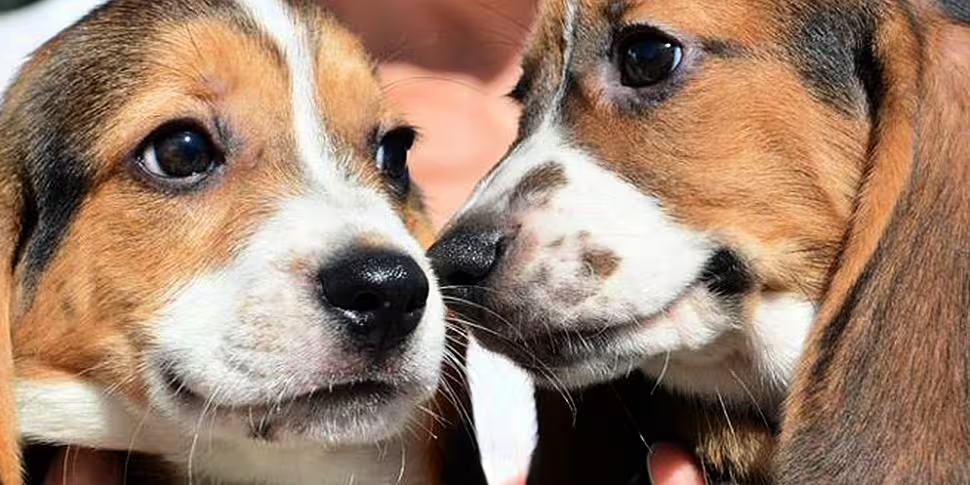Scientists have managed to create test-tube puppies for the first time.
The litter of seven beagle-cocker spaniels were born to a surrogate mother, and have three sets of parents.
Researchers believe the techniques involved can be used in wildlife conservation to protect endangered species.
It is also hoped that it could open up new means for discovery in human and canine genetic diseases.
The puppies were delivered on July 10th, 2015 at the Baker Institute for Animal Health in New York.
The births are the first time this assisted reproduction technique - in which ova and sperm are brought together to create embryos - has been successful in a dog.
These embryos were then frozen, stored, and transferred into a female, who gave birth to the healthy puppies.
Brotherly love | Image: Facebook/The Baker Institute for Animal Health
Dr Alex Travis, of the Baker Institute, says this technique can be stretched further.
"Right now about five species of wild dogs and wolves are threatened with extinction, and managing fragmented populations of these animals is going to require more hands-on approaches," he said.
"We're going to need technologies such as IVF to move genes around to maintain their genetic diversity and to improve the health of these species," he added.
Image: Facebook/The Baker Institute for Animal Health
Scientists have struggled for more than 40 years to develop fertilisation techniques in dogs, but the differences between canine reproduction and that of other mammals slowed progress.
This is not helped by the fact that female dogs ovulate only once or twice per year, and their eggs are released in a very immature state compared with other mammals.
Watch Dr Travis' interview and see the puppies in action:











